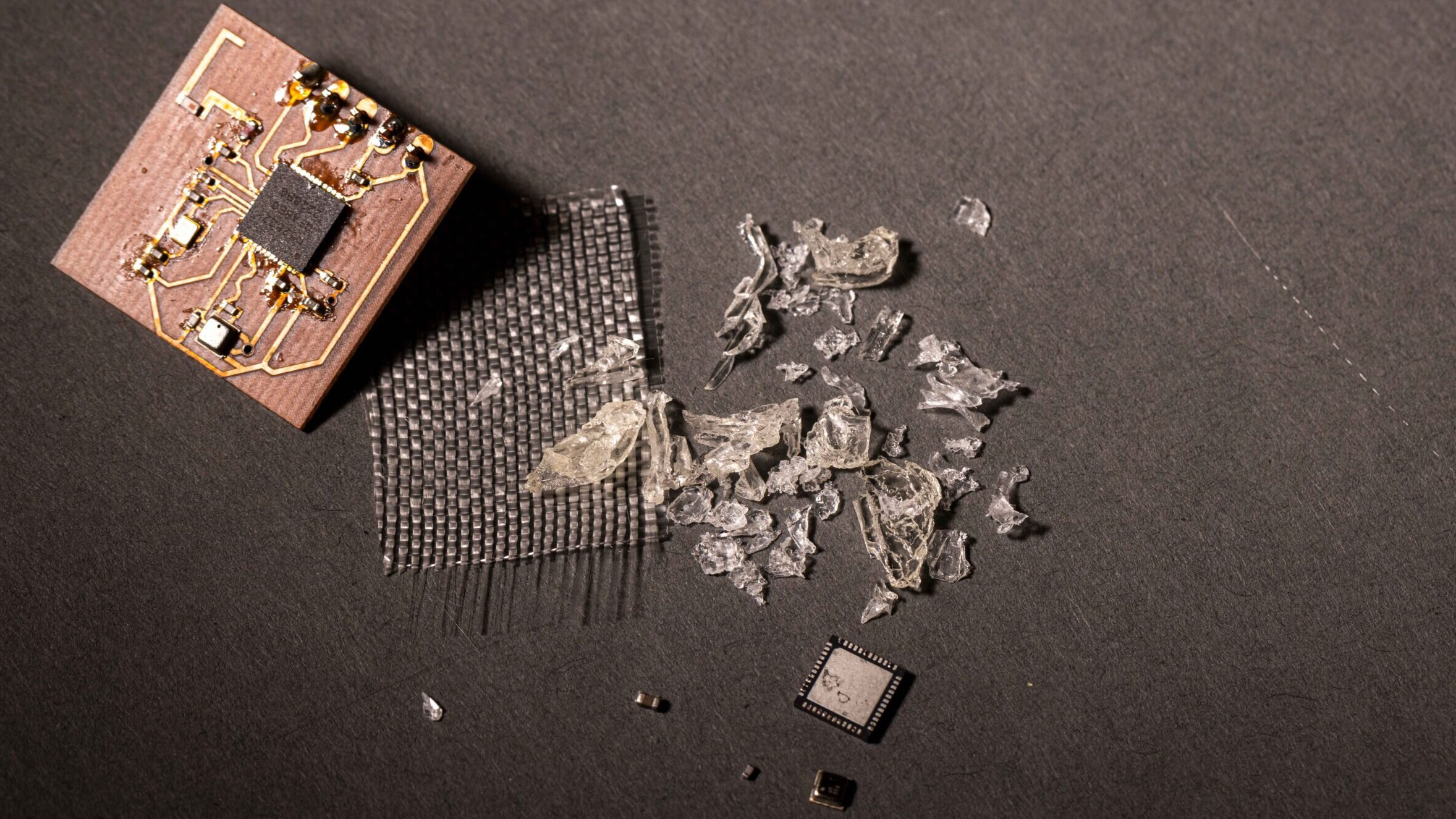
Standard PCBs are known for being fireproof and chemical-proof, but as a result, they are notoriously difficult to reuse or recycle in any way. However, research published by the University of Washington points towards a new way of making more environmentally-conscious, actually recyclable PCBs. The new so-called ‘vPCBs’ (or vitrimer PCBs) are repeatedly recyclable, with very little material going to waste during the recycling process.
vPCBs work by replacing most of the PCB material with vitrimer. Vitrimer is best thought of as a highly engineered polymer jelly that can be either solidified to create a PCB or swelled to make it possible to pluck out components for reuse or recycling. With this process, which should be compatible with existing manufacturing processes, researchers were able to recover 98% of the vitrimer and 100% of the glass fiber by recycling a vPCB.
According to the testing of the original research team from the University of Washington, vPCBs perform roughly the same in strength and electrical properties as FR-4, which is the current most common PCB material in use today. vPCBs, then, seem like they may be a natural replacement — particularly with the potential to reduce carcinogenic emissions by 81% compared to standard PCBs. Since standard PCB disposal makes up a great deal of existing e-waste, a more sustainable solution like this may be just what the environment needs in today’s tech-driven society.
Previously, we’ve also seen another major attempt at making PCBs more sustainable— by making them water-soluble! That is, functioning PCBs that can be dissolved in water, from which their components can still be recovered afterward. If that sounds a lot like this project, that’s because it is — water-soluble PCBs have the same main benefits as vitrimer PCBs. (Also, remember that your working electronics shouldn’t be coming into contact with water anyway, regardless of how the PCB was made.)
With efforts to make more sustainable PCBs and to better recycle the material we already have — like recycling plastic utensils for 3D printing — it does seem that at least some in tech circles still care about reducing the industry’s impact on the planet. Hopefully, we’ll see more eco-friendly manufacturing approaches like vPCB become commonplace.

